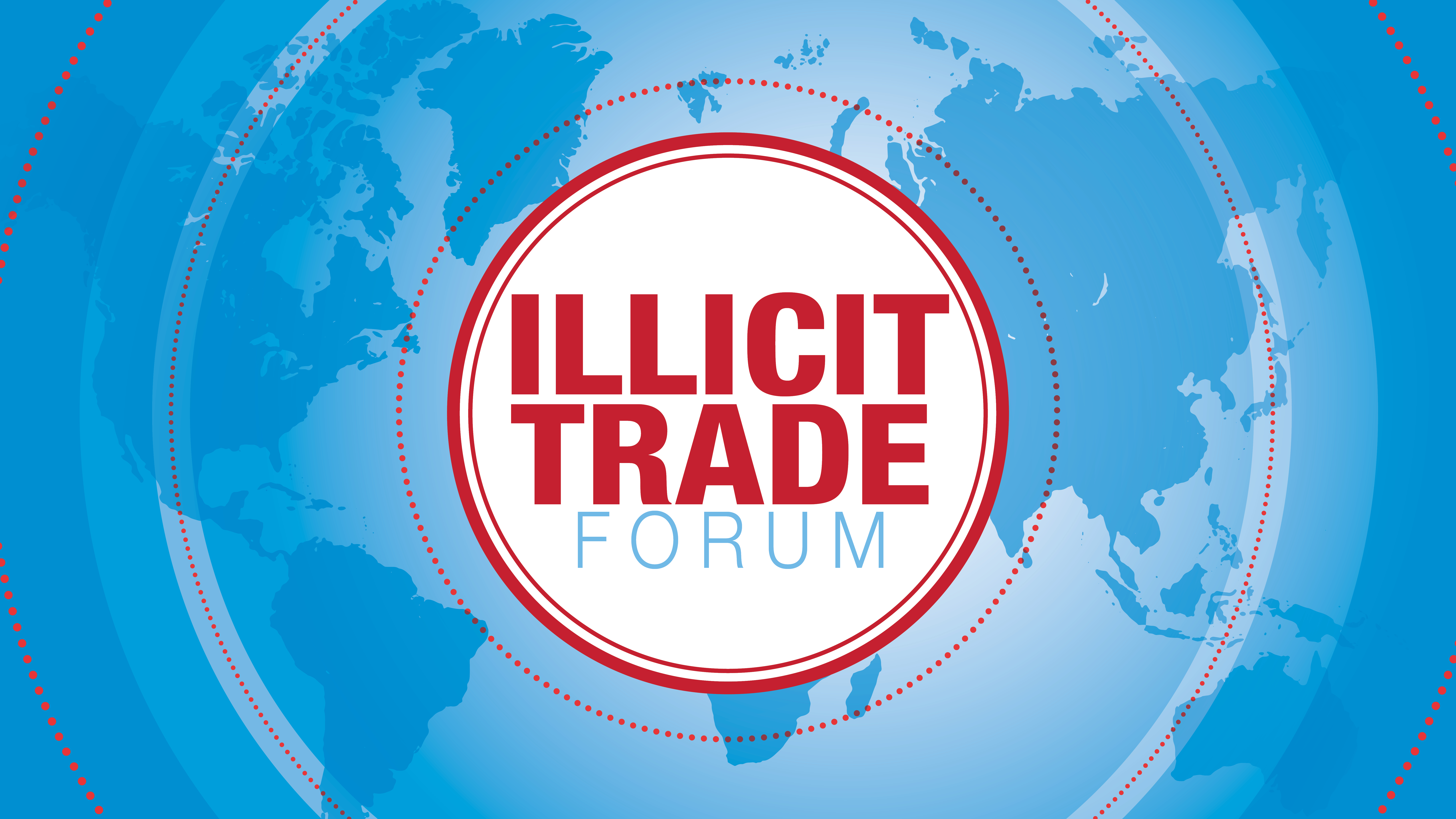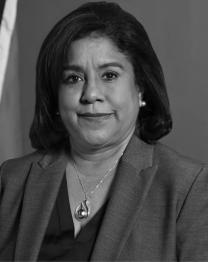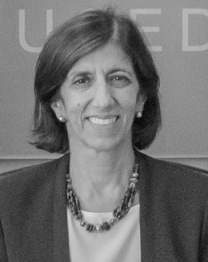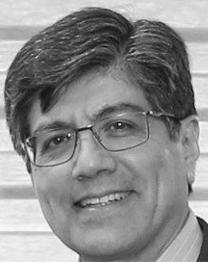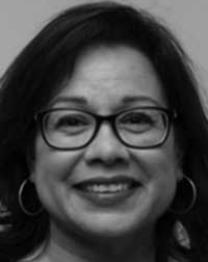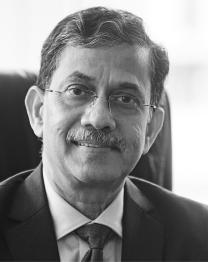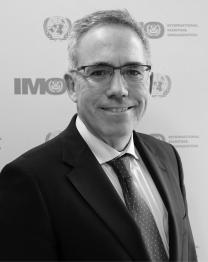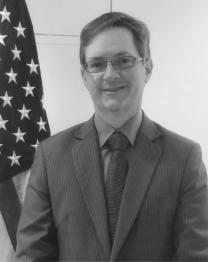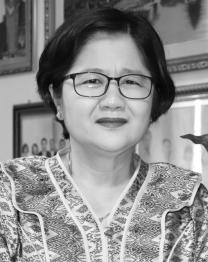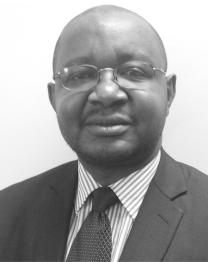Following the inclusion of illicit trade as the only new area of work in the outcome document of UNCTAD15, the Bridgetown Covenant, UNCTAD will host the second iteration of the Illicit Trade Forum in September 2022. The event will be organised in collaboration with the Transnational Alliance to Combat Illicit Trade (TRACIT).
Illicit trade significantly endangers all aspects of the SDGs, creating a triple threat to the financing of development: crowding out legitimate economic activity, depriving governments of revenues for investment in vital public services and increasing the costs of achieving the SDGs by eroding the progress already made. Further, identifying, quantifying and combatting illicit trade requires significant investments from member States and collaboration amongst international organisations, along with cooperative efforts from private sector stakeholders.
To address these issues, the two-day Forum will hold interactive panel discussions on the following topics:
-
Illicit trade in times of crises
Whether it is a conflict, natural disaster, financial shock, or a pandemic, crises of all kinds have proven to be opportunities for criminal profiteering. Increased vulnerability of both producers and consumers, stresses on public services provisions and enforcement frameworks, changing enforcement priorities, unsatisfied demand, distorted supply chains, and spiking demand for particular products all create conditions in which criminal networks thrive.
The COVID-19 pandemic is a prime example. It has fundamentally reshaped the demand for goods and services worldwide, including through the medium of illicit trade. Economic stress, the public health emergency and disinformation-driven panic have pushed many customers, and vendors, towards the shadow economy. While the pandemic’s immediate effect was predictably to slow down all forms of economic activity, including the illicit trade, studies suggest that criminal groups have swiftly adapted to the new normal exploited the situation and entrenched their positions in illicit markets.
As governments move from crisis management into recovery mode, it is important to formulate policies and implement programs that deter and preclude forces of illicit trade from taking root in a post-crisis economy. The ability of United Nations bodies to support Member States to better defend against illicit trade and organized crime is critical in their pursuit of sustainable development.
This session raises awareness about the growing threat that illicit trade poses during economic, health, environmental and conflict crises and draws attention to new strategies to fight this phenomenon.
-
Mitigating illicit trade through maritime transport
Containerized maritime transport is the backbone of globalization, accounting for more than 70% of total value of world trade. Containerized maritime transport offers a range of logistical and technological solutions that benefit both consumers and businesses. Unfortunately, container transport can also be abused for illicit trade. Moreover, the present crisis has aggravated existing problems, enabling criminals to exploit governance gaps. Legitimate containerized maritime trade is threatened, more than ever, by international organized crime groups who operate along legitimate maritime trade supply chains.
Abuse of containerized maritime transport in illicit trade is not a stand-alone problem, and a coordinated approach to address it is required. This effort will involve all relevant actors, including policymakers, international organizations, enforcement authorities, the trade community, and industry. There is also a compelling need for the maritime industry to intensify protection of its sector/supply chain from exploitation by illicit traders and to mitigate illicit trade.
This session will discuss the growing interest in enhancing the role that container shipping will play, while spurring trade, in closing potential governance gaps that might lead to its abuse. This is particularly relevant in the context of post-COVID recovery, and the instrumental role that trade will play in this process. It may also entail recognizing the important commonalities that characterize illicit trade patterns.
-
Trade in falsified medicines: a danger to health and development
Substandard and falsified medical products are a serious and growing threat to global health security, hampering efforts to meet the United Nations Sustainable Development Goal 3.8 of achieving universal access to safe and effective essential medicines. The involvement of organized crime in illicit trade in pharmaceuticals is a direct threat to SDG target 16.4, which calls on countries to “combat all forms of organized crime.” In particular, the rapid growth in illicit sales online sales, including online pharmacies established for the purpose of selling fake or otherwise fraudulent pharmaceuticals, has provided criminals with new entry points into consumer markets worldwide – including those in countries with well-regulated markets.
Criminal actors have become involved in all aspects of the pharmaceutical supply chain – from manufacturing to distribution. Organized criminal networks involved in pharmaceutical crime have also been found to use the profits from falsified medicine operations to subsidize other illicit activities, including money laundering, human trafficking for sexual exploitation and weapons smuggling.
This session will highlight the best practices of governance and co-operation with the pharmaceutical industry that is paramount for ensuring legal, effective distribution of genuine medicines and vaccines. Policy recommendations will be made for governance frameworks to counter illicit trade, which is a challenge for many governments.
-
Illicit financial flows related to trade, tax, and criminal activities
Illicit financial flows (IFFs) are financial flows that are illicit in origin, transfer or use, that reflect an exchange of value and that cross country borders. IFFs cover a wide range of different activities, including drug markets, terrorist financing, aggressive tax avoidance – but they all drain resources and limit countries’ capacity to follow through the 2030 Development Agenda. With defining IFFs conceptually in UNCTAD and UNODC Conceptual Framework for statistical measurement of illicit financial flows, approved by the Inter-Agency and Expert Group on SDGs (IAEG-SDGs), methodological aspects are yet to be resolved.
As an illicit phenomenon, IFFs are not easy to track or measure. They take many forms and use varying channels, rendering their measurement challenging both conceptually and in practice. The challenges differ across countries, depending on main types of IFFs affecting the country, data availability, mandates of national institutions, statistical capacity and national policy priorities. While international comparability is central to SDG reporting, the measurement of IFFs requires space for country-specific solutions and the flexible application of methods in line with the common framework. In June 2021, UNCTAD published Methodological Guidelines to Measure Tax and Commercial IFFs for pilot testing, developed based on extensive deliberations within the Task Force. They identify methods for the measurement of the main types of tax and commercial IFFs in country pilots and will be refined during and after the pilot tests.
This session will invite representatives from stakeholders involved in African pilot countries to share their experience on the measurement of IFFs related to trade. The session mainly targets representatives from customs and revenue authorities, central banks, financial intelligence units, anti-corruption agencies, criminal justice bodies and national statistics offices.
The UNCTAD secretariat will also present a work programme of potential areas for cooperation and collaboration to address illicit trade and work towards fulfilling the newly awarded mandate.
The Forum will encourage an active dialogue involving a wide range of stakeholders, including member States and representatives from IGOs, NGOs, academia and the private sector. Delegates will be encouraged to share their own experiences, views and best practices.
Paula Gopee-Scoon was re-appointed Minister of Trade and Industry on August 19th, 2020. She has been a Member of Parliament since 2007 and previously served as Minister of Foreign Affairs.
In her second term as Minister of Trade and Industry, she continues to build upon and expand programmes initiated in the last five years in an effort to improve the export capacity of the local manufacturing sector and position Trinidad and Tobago as the business and trade hub of the Caribbean. She will also continue to lead the charge towards stimulating domestic and foreign investments while implementing policies to enhance the global competitiveness of Trinidad and Tobago. She believes in continuous stakeholder engagement to ensure participation in the growth and development of all sectors for a sustainable and vibrant economy.
Her personal interests extend to the deepening of Caribbean integration and she believes in and is committed to equal opportunities for personal growth, self-expression and participation in the development process of Trinidad and Tobago, for all citizens.
Teresa Moreira is the Head of the Competition and Consumer Policies Branch, Division on International Trade and Commodities at UNCTAD. She joined UNCTAD in 2016 and previously served as the Consumer Director-General of Portugal and as a Member of the Board of the Portuguese Competition Authority when it was first created. She also served as Portugal’s Director-General and Deputy Director General for International Economic Relations and held senior positions at the Directorate-General for Competition.
Teresa worked for over 20 years as a Teaching Assistant at the Faculty of Law of the University of Lisbon in the areas of International Economic Law and European Law, as well as European Competition Law and European Economic Law at the graduate level.
Teresa holds a degree in Law and a master’s degree in European Law (European Competition Law) from the University of Lisbon, Portugal.
Shelley Duggan is Senior Vice President and General Counsel for Brand Protection, Trademarks & Copyright, Sector Business Units for Procter and Gamble (P&G).
She has been with P&G for 28 years, joining via the Gillette acquisition in 2006. Her expertise covers specifically, Intellectual property law, Anti-counterfeiting, criminal and civil enforcement and general trade mark and Brand Protection issues on and offline.
Shelley established the Brand Protection legal team in 2006 and in 2010 the entire end to end programme was brought under the umbrella of the legal function. Today this team consists of more than 30 individual experts from lawyers, to investigators and forensic experts, who between them have seized hundreds of millions of dollars’ worth of counterfeits and shut down hundreds of factories.
In 2013 the team was awarded the Global Anti-Counterfeiting Groups Company award the same organisation awarded Shelley with their Individual award in 2019 for personal contributions to anti-counterfeiting and brand protection.
Shelley is very active externally on behalf of P&G and until recently was the Chair of the UK Anti-Counterfeiting Group and is Co-Chair and founder member of TRACIT (the Transnational Alliance To Combat Illicit Trade).
Ambassador Jose Valencia was appointed Permanent Representative to the WTO, UNCTAD and other economic international organizations on July 2020.
Ambassador Valencia was Minister of Foreign Affairs of Ecuador from 2018 to 2020. Previously, he has been Ambassador to South Africa, observer to the African Union, Permanent Representative to the OAS in Washington, DC. He has also held posts in the Ecuadorian Missions to the United Nations in New York and Geneva, and at the Ministry at the Capital Headquarters.
Ambassador Valencia has a JD degree from the Catholic University of Ecuador. He earned a Master’s Degree in Public Administration (MPA) from Harvard University, and a Master’s Degree in Political Sciences (MA) from Columbia University, in addition to a Diploma from the Diplomatic School of Spain.
Jose Valencia has worked as associate professor in several Ecuadorian universities, and has written and co-authored publications on international humanitarian law, human rights, migration, environmental protection, and other topics.
Ivonne Higuero is an environmental economist with a career spanning 29 years in international organizations focusing on sustainable development. She is passionate about demonstrating the economic value of biodiversity to spur investment in nature. During her 27 years with the United Nations, Ms. Higuero has managed and provided oversight to the implementation of programmes related to sustainable development and provided secretariat services to intergovernmental bodies, particularly in the field of environment and biological diversity. With the adoption of Agenda 2030 and the Sustainable Development Goals, she has been responsible for ensuring the alignment of a variety of UN programmes to support countries in meeting their international commitments, including through cross-sectoral cooperation. Ms. Higuero has experience working with UN Member States at the global, regional and national levels, and engaging with civil society and private sector stakeholders.
The Secretary-General is a national of Panama and holds a Bachelor of Science degree in Biology from the University of Missouri and a master’s degree of Environmental Management in Natural Resource Economics and Policy from Duke University.
Joanne Lebert is Executive Director at IMPACT, having joined in 2011. She leads work to improve how natural resources are managed where security and human rights are at risk. Her work has focused on contributing to responsibly-sourced, conflict-free minerals and she has helped Central African governments launch and implement a regional strategy to tackle conflict minerals.
Ms. Lebert is a policy advisor, frequent guest speaker, and trainer to policymakers, private sector representatives, and civil society organizations.
Jeffrey Hardy is the Director-General of the Transnational Alliance to Combat Illicit Trade (TRACIT), and has been since its inception in 2017.
Before joining TRACIT, he led various special initiatives for the International Chamber of Commerce on G20, anti-counterfeiting, climate change, SMEs and sustainable development.
As President of IDA Consulting, Mr. Hardy helped dozens of international trade associations more effectively navigate legislative and regulatory regimes. From 1985 to 1998, he worked for the United States Government.
Mr. Pranab Kumar Das is the Director of the Compliance and Facilitation Directorate of the World Customs Organization.
Mr. Das has experience of over 36 years in Customs and Indirect Tax Administration in India having worked in various positions. As the Chairman of the Central Board of Indirect Taxes and Customs he was leading a team of over 85,000 officers within Customs, Goods & Services Tax and Central Excise Duty.
Mr. Das’ deep commitment to customs reforms has seen India’s World Bank Ranking under the pillar of “trading across borders” improve from 146 in 2017 to 68 in 2019 and overall ease of doing business rankings from 100 in 2017 to 63 in 2019. He has spearheaded major trade facilitation and customs modernization initiatives such as the Single Window, Authorised Economic Operators program, mutual recognition agreements with key trade partners, paperless processes, strengthening Customs laboratories, and off-border clearances.
Mr. Das holds a Master’s degree in economics and a degree in law apart from a masters in philosophy on, “GST and its role on economic security”. He is also the recipient of the President of India’s Award for ‘Specially Distinguished Record of Service’.
Claudio Bozzo is the Global Chief Operating Officer of the Mediterranean Shipping Company (MSC) and has held this position since 2014.
He began his career at Reale Mutua Assicurazioni, joining Columbus Travel in 1992 to help develop the Turkish and Caribbean Markets. In 1994, Mr. Bozzo joined MSC in New York, where he worked his way up the ranks, becoming President and CEO of MSC in the United States of America. He now resides and works in Geneva, Switzerland, and supervises the worldwide operations of MSC, including more than 400 offices in 150 countries, with 30000 people. Since 2020, Mr. Bozzi has acted as Chairman of the Safety and Security Council of the World Shipping Council.
He has received numerous awards and accolades for his work in international business and shipping, including being appointed Knight of the Italian Republic in 2004.
Julian Abril is the Head of Facilitation of the International Maritime Organization (IMO). He joined the IMO in August 2011, and he is the secretariat of the Facilitation Committee of IMO. Under his current responsibilities, he has participated in different regional and national technical cooperation activities to promote the ratification of the Convention on Facilitation of International Maritime Traffic, its effective implementation and single window projects.
Prior to joining IMO in 2011, he sailed as Chief Officer and Officer in charge of navigational watch in merchant ships before he joined the Spanish Maritime Administration in 1992. He has 30 years of experience in maritime administration on subjects related to safety, security, human factor, and facilitation, at national, regional and international level. He holds a Master degree on Merchant Marine from Cadiz University, Spain.
John Thompson serves as the Deputy Assistant Secretary for Environment in the Department of State’s Bureau of Oceans and International Environmental and Scientific Affairs (OES). In this position, he is responsible for policies and programs in the areas of environment, conservation, wildlife trafficking, water resources, and global change.
From 2017-2019, Dr. Thompson served as Director for International Environment at the White House National Security Council and National Economic Council. Dr. Thompson oversaw White House international policy development on a full range of environment and oceans issues, including wildlife trafficking, conservation crimes, air quality, climate change, whales, and fisheries. He played a leading role managing White House engagement on these issues during the 2018 and 2019 Leaders meetings for the G7 and G20.
Dr. Thompson joined the Department in 2000 as an American Association for the Advancement of Science Fellow and spent the subsequent 18 years working in the OES environmental policy office and its front office.
Dr. Thompson holds a PhD in environmental engineering from Purdue University, focusing on advanced technologies for drinking water disinfection. He holds master’s degrees from Purdue in aeronautical as well as environmental engineering and a bachelor’s degree in physics from Rose-Hulman Institute of Technology.
Jan joined UNCTAD in 2003 and is Chief of the organization’s Trade Logistics Branch since 2016. The Branch implements research and technical assistance programmes in international transport and trade facilitation.
Previously, Jan worked six years for the UN ECLAC in Santiago de Chile, and two years for the IMO in London and Santiago.
Prior to this, he held part time positions as assistant professor, import-export agent, and seafarer. Jan has studied in Germany, UK, and Spain, and holds a PhD in Economics from the University of Hamburg.
Her Excellency Dr. Or Vandine is Secretary of State of Health in Cambodia, having been appointed in 2019.
Over her 27-year career, she has worked in government and the World Health Organization, utilizing her expertise and training across national and international levels. Before becoming Secretary of State, she held leadership roles in the Ministry of Health (MOH), which included serving as Deputy-Director of CDC, Manager, Principal Recipient of the MoH for the Global Fund Grants to Fight AIDS, TB and Malaria, and Director of the Department of International Cooperation. In 2013, she was nominated to be Director General for Health and later became the Spokesperson for the MoH. From 2013 to 2018, she acted as Principal Investigator of the SIHAP Project supported by US-CDC.
Her Excellency Dr. Or Vandine received her degree in Primary Nurse (Nurse Practitioner) in 1980. She graduated Medical Doctor in 1988 and she became the first Cambodian woman to be awarded a Fulbright Scholarship to study at Yale University, United States, for a degree of Master of Public Health (1996). She was awarded “Alumni Public Service Honor Roll” on 5 June 2009 from Yale University.
Karen Hale is the Chief Legal Officer at Novartis. She leads legal, public affairs and global security functions, which support the company’s purpose of reimagining medicine while ensuring high standards of ethics and business conduct to reinforce trust with society.
Ms. Hale joined Novartis in May 2021, bringing more than 20 years of experience in resolving legal and compliance issues in the global pharmaceutical industry. Prior to joining Novartis, she held a succession of senior roles at AbbVie including Vice President, Deputy General Counsel and Chief Ethics & Compliance Officer.
Before joining the pharmaceutical industry, Ms. Hale was an associate attorney with the law firm Sidley & Austin in Chicago, Illinois. She gained a bachelor’s degree in economics from Duke University and a Juris Doctor degree from the College of William and Mary. In 2019, Karen was named by Black Enterprise magazine as one of the 50 most powerful women in corporate America.
Suja Rishikesh Mavroidis is Director in the Market Access Division at the World Trade Organization. She has worked for a little more than thirty years at the GATT/WTO in different capacities.
She started in the Development Division where she dealt with issues such as tropical products and natural-resource based products. As a member of the Market Access Division, she dealt with inter alia Tariff Schedules, the Customs Valuation Agreement, and the Pre-shipment Inspection Agreement. Since 2001, Mrs Rishikesh Mavroidis has also been Secretary to the Negotiating Group on Market Access. In February 2015, she became Director of the Market Access Division.
She has a degree in business administration from the University of Geneva, and a Master's degree in International relations from the University of Cambridge.
Bob Van Den Berghe is a Deputy Senior Programme Coordinator of the UNODC WCO Container Control Programme (CCP). He has a wealth of law enforcement expertise and experience, as well as a proven track record of implementing large scale projects in the Latin American and Caribbean region. For more than 30 years, Bob served in various positions in the national government and UNODC.
He joined UNODC in 2014 as the Regional Coordinator in charge of implementing the CCP in Latin America and the Caribbean based in Panama. Before joining UNODC, Mr. Van Den Berghe worked for the federal judicial Police in Belgium. From 2000 to 2014, he was part of the federal anti-narcotic team from the federal judicial Police at the Port of Antwerp in Belgium, considered the most important port in Belgium, and the second major commercial port in Europe.
He has a lot of experience in international cooperation in order to improve port security, to fight organized crime and to assist the Governments to maintain and strengthen maritime, border and air container cargo controls so as to prevent illicit trafficking in narcotic drugs, precursor chemicals, biological, radioactive or nuclear (CBRN) materials, and other illicitly trafficked goods such as falsified medical products, protected wildlife and contraband.
Miho Shirotori is the Acting Director of the Division on International Trade and Commodities (DITC) of the United Nations Conference on Trade and Development (UNCTAD).
Miho also leads a team of experts that assess how trade agreements, trade in services, and the creative economy contribute to inclusive and sustainable economic diversification.
Her expertise includes “equitable” trade in agriculture for least developed countries, low-income countries, and net food-importing developing countries.
Miho represents UNCTAD in global conferences and various inter-agency activities, including the UN inter-agency task force that monitors the implementation of the Addis Ababa Action Plan for the Financing for Development.
Anu Peltola is the Director of UNCTAD Statistics, overseeing the statistical work of the UN Trade and Development. She supports countries in measuring Sustainable Development Goals (SDG) indicators on trade, maritime transport, investment, illicit finance, South-South cooperation, and enterprise sustainability. Anu brings over 25 years of experience in official statistics at both the national and international levels. At UNCTAD, she has been involved in coordinating UN system-wide data efforts with co-leads and partners, particularly on initiatives such as beyond GDP and the cost of SDG transitions. Her team also contributes to the development of new statistics and methodologies and enhancing countries' statistical capacity in measuring trade and development. Examples include a new set of indicators on gender equality in trade and the inclusive growth index. UNCTAD's statistics are released in UNCTAD Data Hub and Data Insights always reflecting the latest data in UNCTADStat and SDG Pulse sharing the latest data-driven analysis.
Before joining UNCTAD, Anu was engaged in preparing Chief Statisticians’ meetings under the Conference of European Statisticians in UNECE and coordinated international efforts to develop guidance for instance on modernising statistical legislation and enhancing the value of official statistics. She established a new joint work stream for climate and statistical communities. Previously, she worked in Statistics Finland serving as Head of Statistics and Head of Development in short-term economic, business and household statistics.
Diana Camerini is an illicit financial flows (IFFs) data specialist at the United Nations Office on Drugs and Crime (UNODC), Vienna.
She joined the UNODC Data Development and Dissemination Section in 2016, and since then has been working intensively on the definition of concepts and methods for the statistical measurement of IFFs, with a focus on IFFs generated by illegal markets and other criminal activities. Ms. Camerini is currently managing a project for pilot testing such methods in Asia and, previously, she participated in pilot testing in Latin America. At UNODC, she also works on several other drugs and crime statistics and research, such as trafficking flows of drugs and wildlife products, drug demand indicators and corruption measurement.
Between 2014 and 2016, Ms. Camerini worked as an empirical researcher at Transcrime (Milan, Italy), focusing on money laundering risk modelling and methods to estimate proceeds of illegal market activities. She holds an M.Sc. in Economic and Social Sciences (2012) from Bocconi University.
Dr. Gamal Ibrahim is the Chief of Economics Governance and Public Finance Section, Macroeconomics and Governance Division of the United Nations Economic Commission for Africa (ECA). He currently leads ECA's technical work on economics governance, public finance and illicit financial flows. Previously, he led the secretariat of the United Nations High Level Panel on Financial Accountability, Transparency and Integrity.
Dr. Ibrahim has an MA in Development Economics from the University of Leeds and a PhD from Nottingham Trent University. He taught Economics at Nottingham Business School before joining the Fragile States Unit at the African Development Bank and then the Arab Monetary Fund in Abu Dhabi, as a Senior Economist.
Dr. Ibrahim has published widely in books and leading economics journals. His main field of specialization is institutional economics with a particular emphasis on development planning, economic governance, finance for development, illicit financial flows and private sector development. He served as a resource person for the African Economic Research Consortium research and training programmes. He is a research fellow for the Economic Research Forum (ERF).
Bojan Nastav is a statistician at UNCTAD, working on methodological guidance for measuring tax and commercial illicit financial flows. previously, he has worked as a researcher at University of Primorska (Slovenia), focusing on statistical and economic analysis of the phenomenon of the shadow economy and at the National Statistical Office of Slovenia.
Anastasia Maga is a regional consultant with the Statistics Division of United Nations Economic and Social Commission for Asia and the Pacific, where she is responsible for the project on measuring illicit financial flows in Asia.
She started her professional career as a university lecturer and researcher in 2004, and in 2007 she completed her doctoral work at the Transbaikal State University, Russian Federation. In 2017 she moved to Thailand and continued her teaching and research work at Stamford International University, Bangkok, Thailand. In 2019 she started a doctoral degree in Finance at the National Institute of Development Administration, Thailand.
She attended the Chita State University where she completed the specialist program in regional studies, with a major in North American studies. She went onto to complete a specialist program in economics as her second degree.
Joseph Tembo is Assistant Director of the Economic and Financial Statistics Division at the Zambia Statistics Agency, and the National Coordinator on Small Scale Cross Border Trade project under COMESA. In addition, in 2021-2022 he worked as the National Focal Point on the IFFs Pilot Project in Zambia. Prior to 2018, he was the Principal Statistician/Head of International Trade and Balance of Payments Statistics Branch at the Zambia Statistics Agency.
Mr. Tembo has a master’s degree in economics and finance from the University of Lusaka.
Kathy Nicolaou-Manias is the Regional Technical Advisor on Illicit Financial Flows (IFFs) for the United Nations Economic Commission for Africa (UNECA), with more than 11 years of experience on tax and commercial IFFs through trade.
She has co-authored UNECA’s 44 country study for Africa to measure trade misinvoicing and Trade-based Money Laundering using different methods. In 2011, she headed the research policy department at South Africa’s Financial Intelligence Centre, where she provided advice to the Minister and Deputy Minister of Finance on IFFs and the illicit economy.
Ms. Nicolaou-Manias chaired the inter-departmental working group on IFFs and the Working Group on Bitcoin and Cryptocurrencies. She wrote the background statement and non-paper for the South African government to include tax and commercial IFFs into the G20’s Development Working Group agenda. She represented South Africa at the OECD’s Charting Illicit Trade Task Force, from 2012 to 2016.
Ms. Nicolaou-Manias has a Masters in Economics.
Lauraine Habib is a Senior Policy Analyst at the Sustainable Development Unit in the Egyptian Ministry of Planning and Economic Development.
She received a Bachelor’s degree in Political Science in 2018 from both the Faculty of Economics and Political Science at Cairo University and Paris 1 Panthéon-Sorbonne University. She has taken part in different volunteering missions around Egypt to raise awareness on Sustainable Development and Egypt Vision 2030, but also for humanitarian and social development causes.
Ms. Habib is an active member in the Ship for World Youth Alumni Association (SWYAA-Egypt).
Stefano Betti is the Deputy Director General of the Transnational Alliance to Combat Illicit Trade (TRACIT). He has over twenty years of experience providing legal and policy advice to governments and international organizations on global security and criminal policy matters. He collaborates with several United Nations entities on projects related to counter-terrorism, corruption and organized crime.
From 2013 to 2016, he was Senior Counsel at INTERPOL's Office of Legal Affairs. Between 2002 and 2013, he worked at UNODC, where he provided technical assistance for the implementation of criminal justice treaties worldwide.
Mr. Betti holds an MSc in “European Studies” from the London School of Economics and a Law degree from the University of Milan. He is an Associate Fellow of the International Institute for Strategic Studies.

